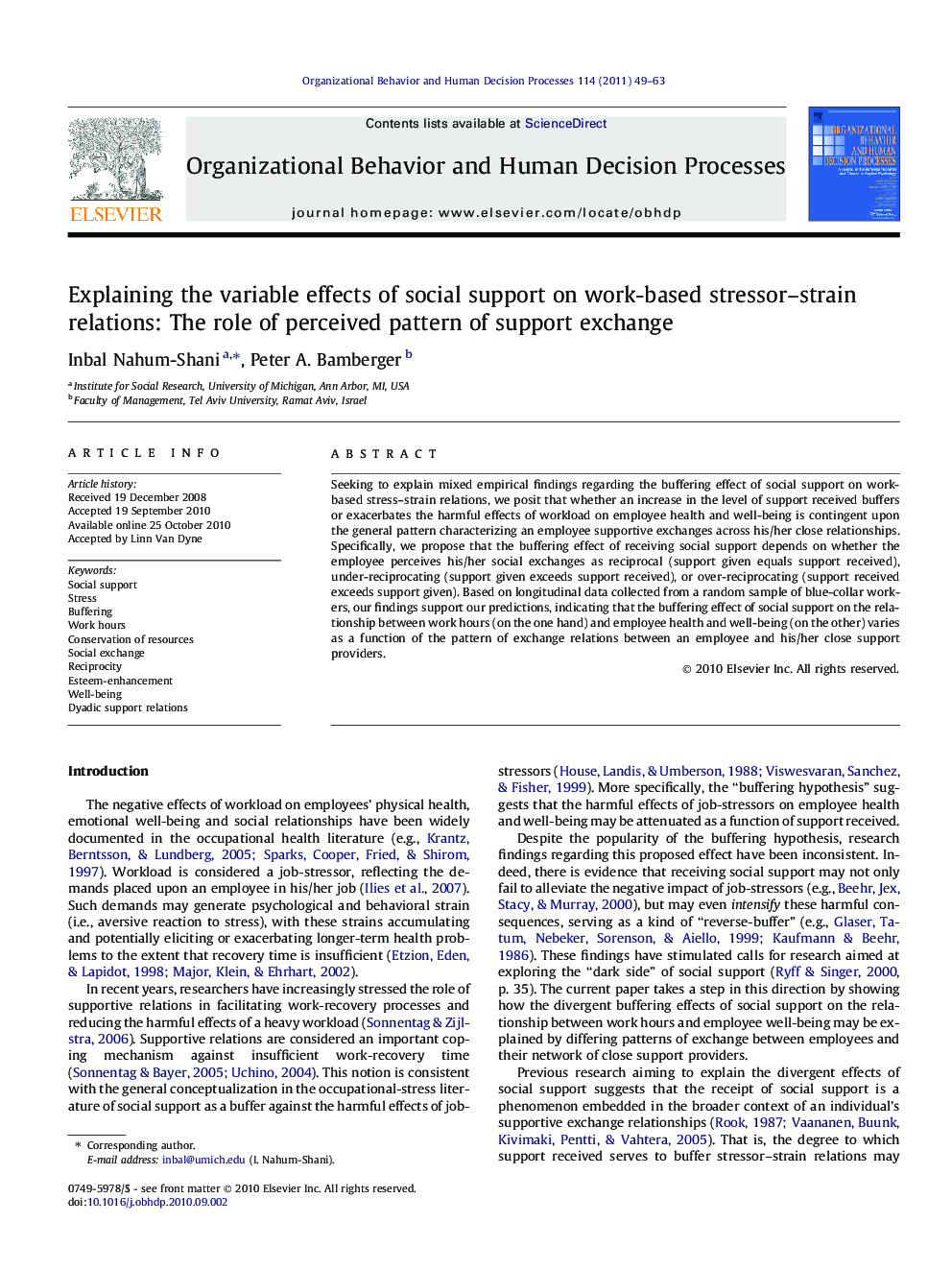| Article ID | Journal | Published Year | Pages | File Type |
|---|---|---|---|---|
| 888778 | Organizational Behavior and Human Decision Processes | 2011 | 15 Pages |
Seeking to explain mixed empirical findings regarding the buffering effect of social support on work-based stress–strain relations, we posit that whether an increase in the level of support received buffers or exacerbates the harmful effects of workload on employee health and well-being is contingent upon the general pattern characterizing an employee supportive exchanges across his/her close relationships. Specifically, we propose that the buffering effect of receiving social support depends on whether the employee perceives his/her social exchanges as reciprocal (support given equals support received), under-reciprocating (support given exceeds support received), or over-reciprocating (support received exceeds support given). Based on longitudinal data collected from a random sample of blue-collar workers, our findings support our predictions, indicating that the buffering effect of social support on the relationship between work hours (on the one hand) and employee health and well-being (on the other) varies as a function of the pattern of exchange relations between an employee and his/her close support providers.
